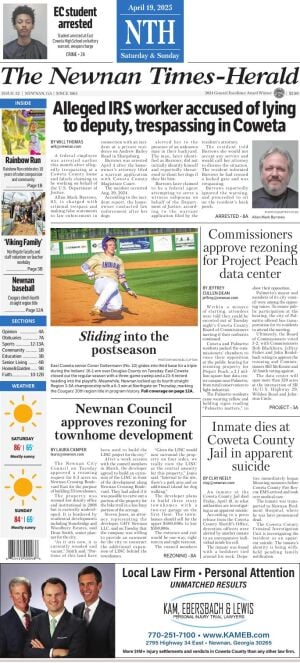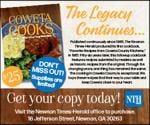This week in 1930 brought fine spring weather, and Newnan police Chief Walter E. Askew observed “lots of people planting gardens, some few planting cotton seed.”
No wonder. The price of cotton had gotten so low and the devastation of the crop by the boll weevil so high that Southern bankers had taken a stand to convince farmers to diversify their crops.
During six months in 1929, 19 farms in Coweta County had been lost due to nonpayment of loans and taxes, according to “A History of Coweta County, Georgia.”The same thing was happening all over the South. As a result, Southern banks were feeling the pressure too.
Under a headline reading “No Food Crops, No Loans,” an editorial from the Atlanta Constitution was shared on the editorial page of the Newnan Herald. It applauded the “proposed plan” by Southern bankers during a recent conference in Atlanta to limit loans to farmers who don’t have at least some of their cultivation in food crops that can be used to feed their families. “The southern farmer may know more about growing cotton than any other crop, and it may be easier for him to do so, but that is no longer a valid excuse for his sticking to cotton as his only crop, for with expert advice as easily securable as it now is, he can with the exercise of the proper diligence, raise just as good food crops as he can cotton,” the editorial said.
The Herald’s editor generally agreed, but admitted, “It is rather difficult to convince the farmer, however, that the banker should step in and tell him what he must plant, when in the past all the banker or supply merchant wanted was cotton and more cotton.”
In the past, the Herald’s editor continued, a number of local farmers had tried to diversify only to find themselves unable to market their new crops. However, if they would stick to raising food crops for the use of their own families, and for livestock which they could sell, they would have plenty to eat, “and some farmers make no inconsiderable income on such practices.”
There was no end of advice from farming experts in the pages of the April 7 edition. One opined on the proper fertilizer for cotton, another on feed for dairy cows. I got a giggle out of an article which quoted the U.S. Department of Agriculture’s swine specialist.
The important thing, he said, was to start with “well-bred pigs” rather than “just any kind that can be bought for a small price.” This brought to mind an image of dainty, simpering pigs holding china teacups in their hooves!
Kathryn Smith, who has twice been Newnan’s artist in residence, is a history writer who lives in South Carolina. She welcomes readers from Newnan to get daily emails about Chief Askew’s diary at her blog, bootleggers.substack.com. The diary belongs to the Thomasson family, owners of The Newnan Times-Herald.









